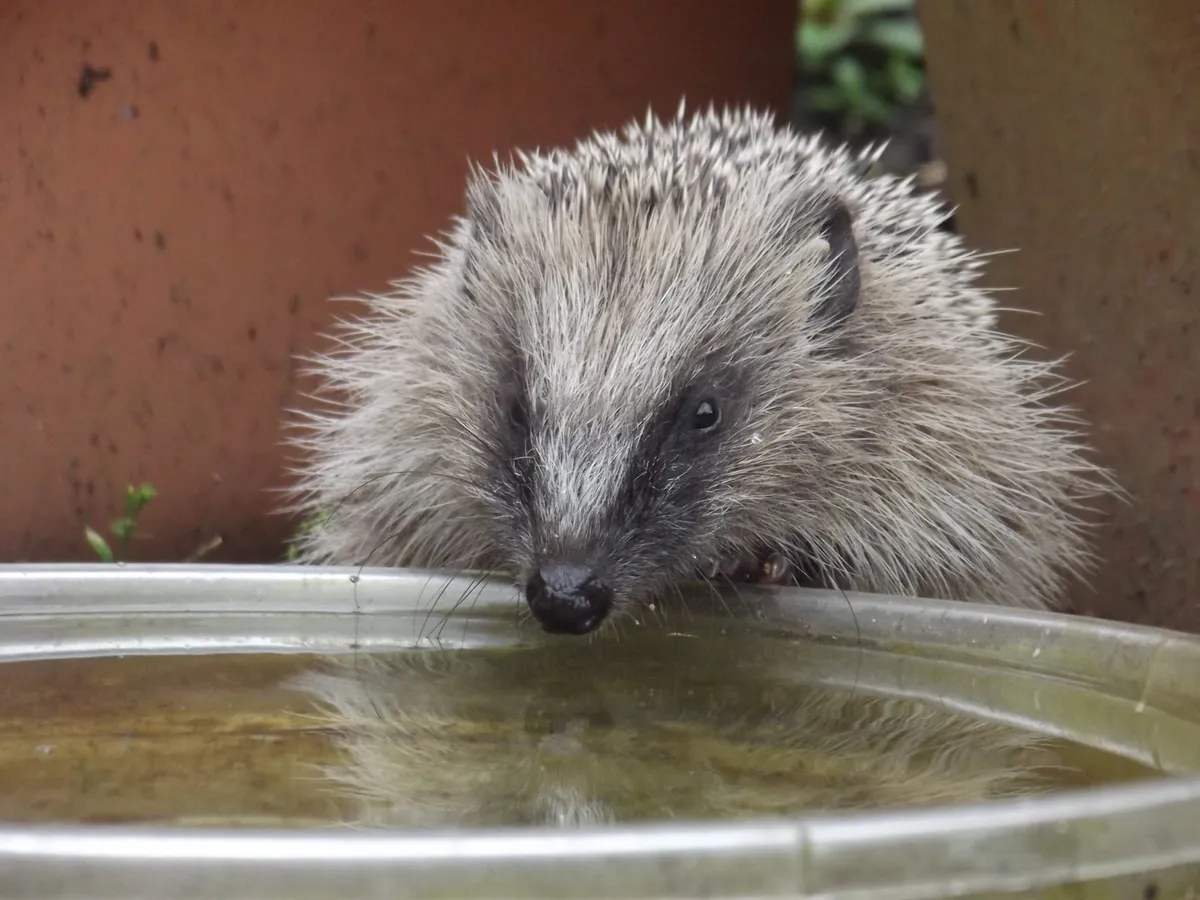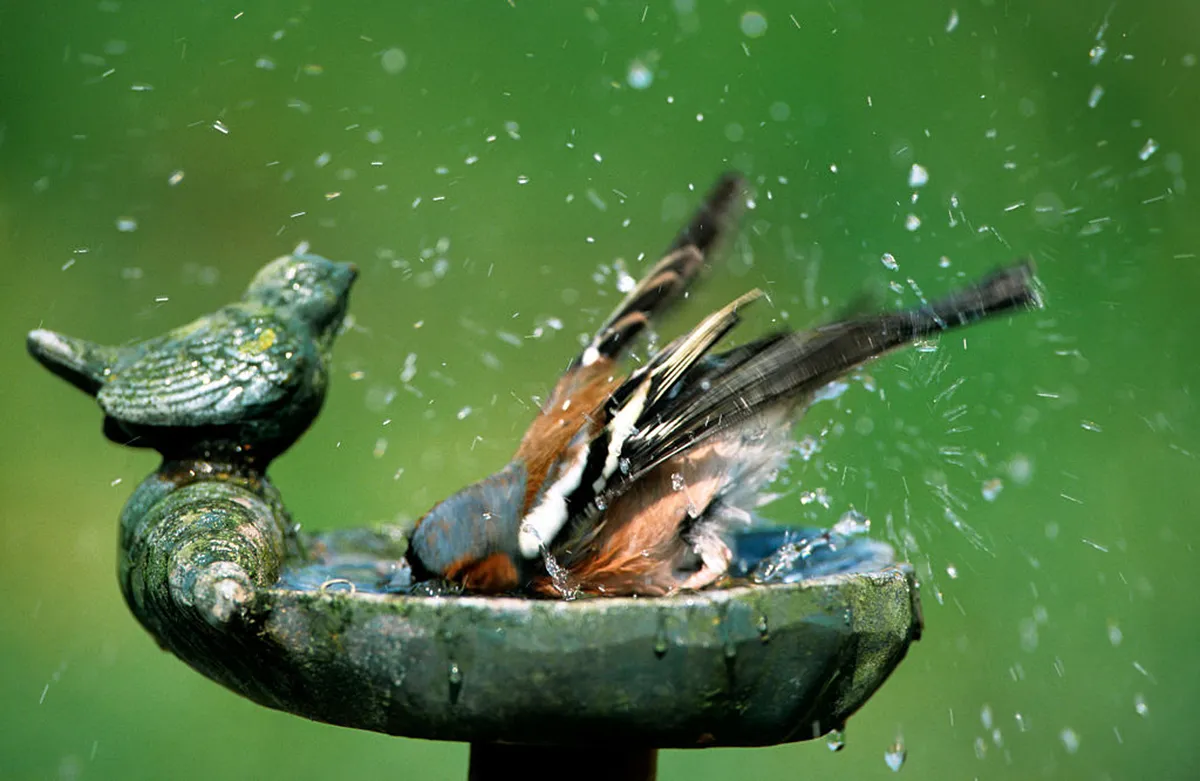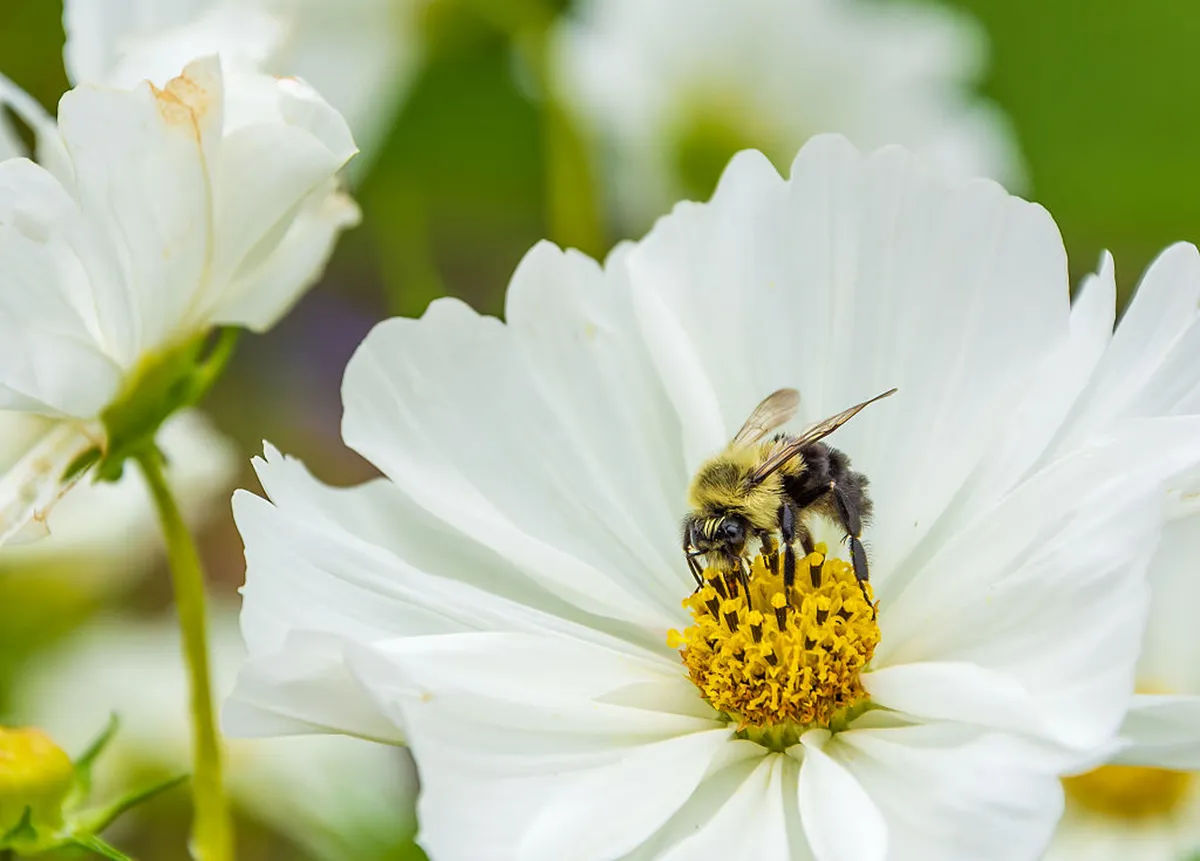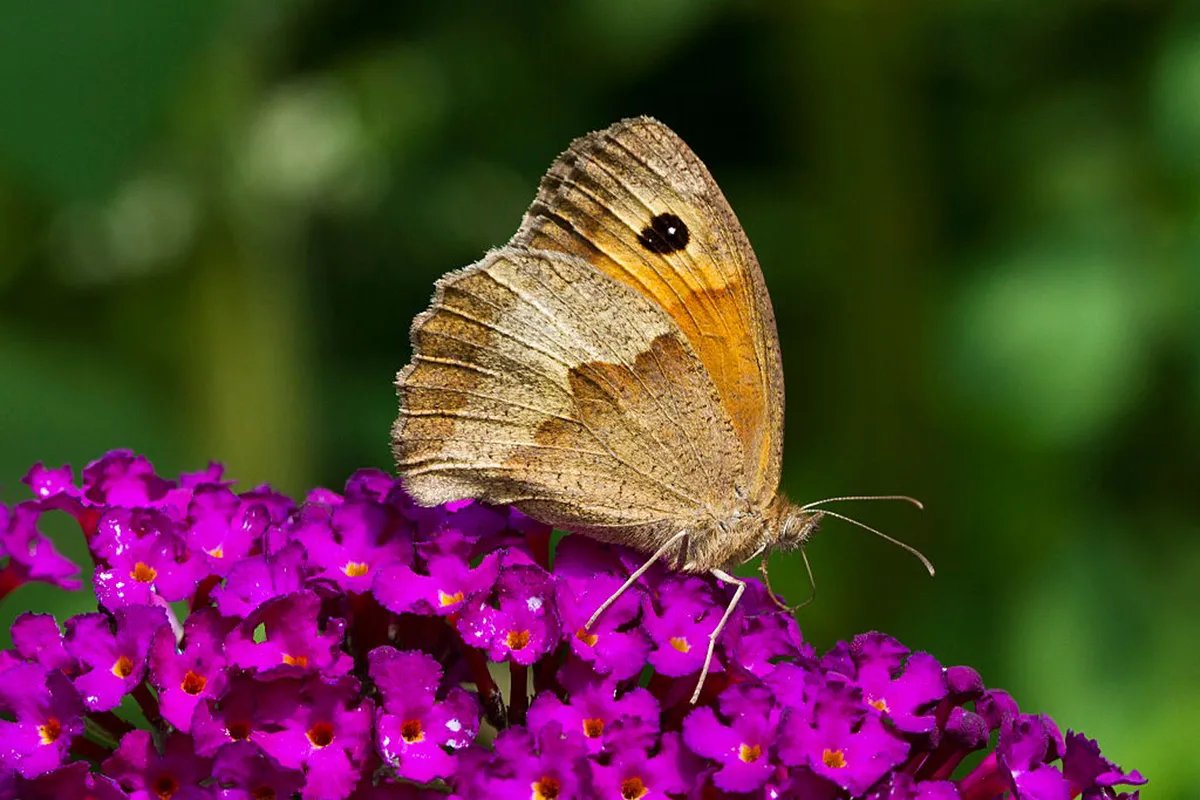While we may welcome a summer heatwave during the British holiday season, for our garden wildlife it can be a challenging time as dehydration and heat exhaustion in extreme weather can be deadly.
Just as we enjoy a cold drink or dunking our feet in a paddling pool to cool off – so do our garden birds, hedgehogs and pollinators such as bees and butterflies. Simple actions, such as providing access to fresh, clean drinking and bathing water and some shade can make a huge difference to wildlife.
Here is our expert guide on how to help different species of wildlife in your garden during a heatwave.
Hedgehogs
Hedgehogs are vulnerable mammals during the summer, with the British Hedgehog Preservation Society (BHPS) noting the influx of calls to report dehydrated hedgehogs. Fay Vass, Chief Executive of BHPS, said: “With the very hot dry weather hedgehogs and other wildlife are struggling to find natural sources of water, and the ground is so dry and hard that their natural food is hard to come by too.” Make sure to leave small bowls of water out, and meaty pet foods make good food as well.

Hedgehogs don’t sunbathe!
The British Hedgehog Preservation Society has issued a plea for people to keep an eye out for hedgehogs in need of help.
Hedgehogs are nocturnal so should not normally be out in the daylight. There are some exceptions to that rule, for example if a nest has been disturbed and the hedgehog is relocating, or if a busy mum is taking a break from the nest. However, these hedgehogs would be moving quickly ‘with purpose’.
If you find a hedgehog in need of help the Society suggest you use gardening gloves or an old towel to collect the animal, placing it inside a high sided cardboard or plastic box with the towel or an old t-shirt in the bottom for it to hide under. Bring the box indoors away from flies. Offer some meaty cat or dog food and water but don’t force feed it.
Once you’ve done that, call a local hedgehog rescue centre if you know of one, or BHPS on 01584 890 801 for further advice and local contacts.
Birds
Water baths are great for wild birds, as they can cool down in the water and drink it. Plus, they can provide much-needed water for other small animals with access. Bird feeders are also useful additions to your garden or, alternatively, you can scatter a few seeds for them to eat.

Bees
In warm weather, bees often become exhausted and may lay on the ground to recover. You can help them by providing a water and sugar solution to give them a boost of energy. This will aid them in regaining enough energy to fly back to their hive.

Butterflies
Unlike other animals and insects, butterflies thrive in summer heat. However, you can still help the butterflies in your garden by planting flowers which produce a lot of nectar. These include, Buddleja, Verbena, Common Knapweed, and others. Given the heat, why not take part in the Big Butterfly Count taking place this summer?

Aquatics
If you have a fish pond in your garden, make sure to keep the water clean and ensure the water isn’t dense with weeds. Providing some shade over the pond can also help to cool the water down, but maintain as much light as possible to encourage water plants to grow.
Main image credit: Male sparrow drinking water/Credit: Getty.
